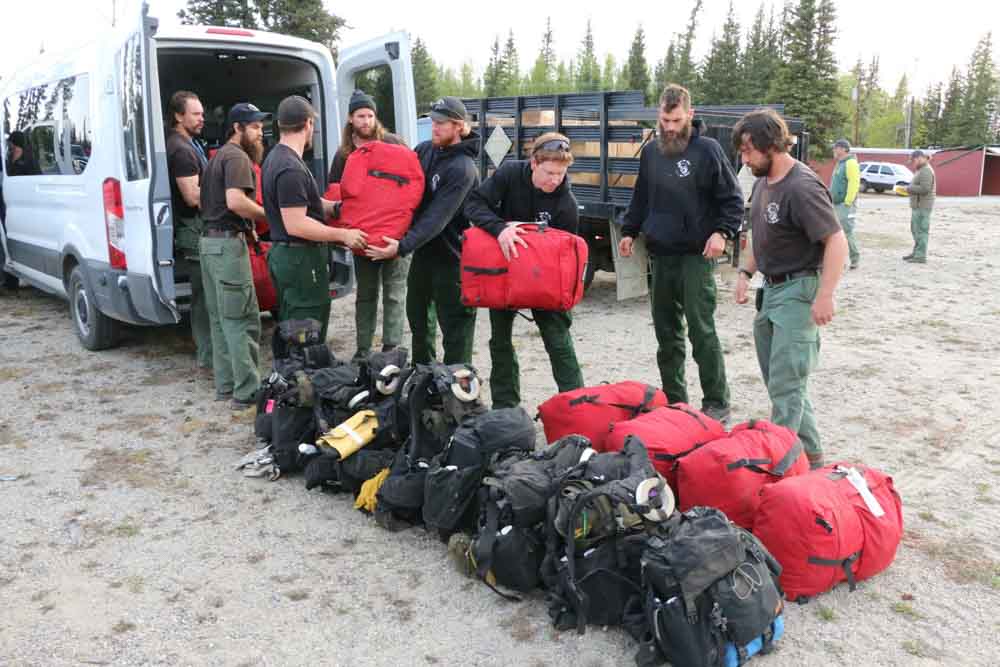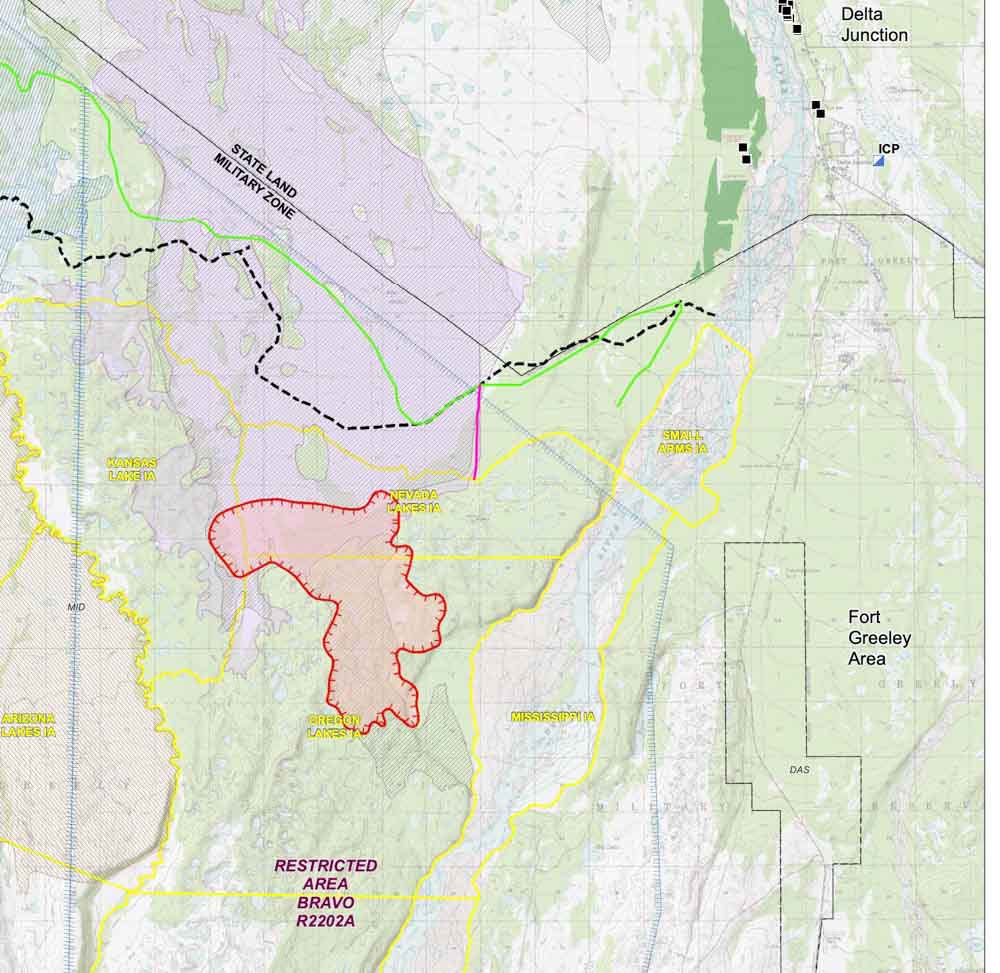
Sunday afternoon a burnout operation being conducted by a Type 2 hand crew on the Oregon Lakes Fire 11 miles south of Delta Junction, Alaska slopped over a fireline and burned 240 unplanned acres. Firefighters, aided by heavy equipment and a helicopter, were burning grass along a fuel break about two miles north of a military training impact area.
Two helicopters and both of the state air tankers that were on contract were used on the slopover, including Tanker 42, a Convair 580, that was on the first day of its contract.
It is very rare for retardant to be needed on a fire in Alaska this early in the year. The water-scooping Fire Bosses are not yet on contract, but would have been well suited for the job with the nearby Delta River serving as a water source.
In addition, two Type 1 Hotshot crews were mobilized Sunday, Chena and Midnight Sun.

A Temporary Flight Restriction (TFR) is in place over the fire to prevent outside aircraft, including military aircraft, from interfering with the suppression efforts. Part of the TFR is over restricted military airspace.
The fire was reported April 30 and so far has been burning in an area that is off-limits to firefighters and low-flying fire suppression aircraft due to the likelihood of unexploded ordnance on the ground. It is burning mostly in tall, dry grass and downed trees from the 2013 Mississippi Fire west of the braided Delta River.
The Incident Management Team reports that the fire has burned 5,732 acres.

